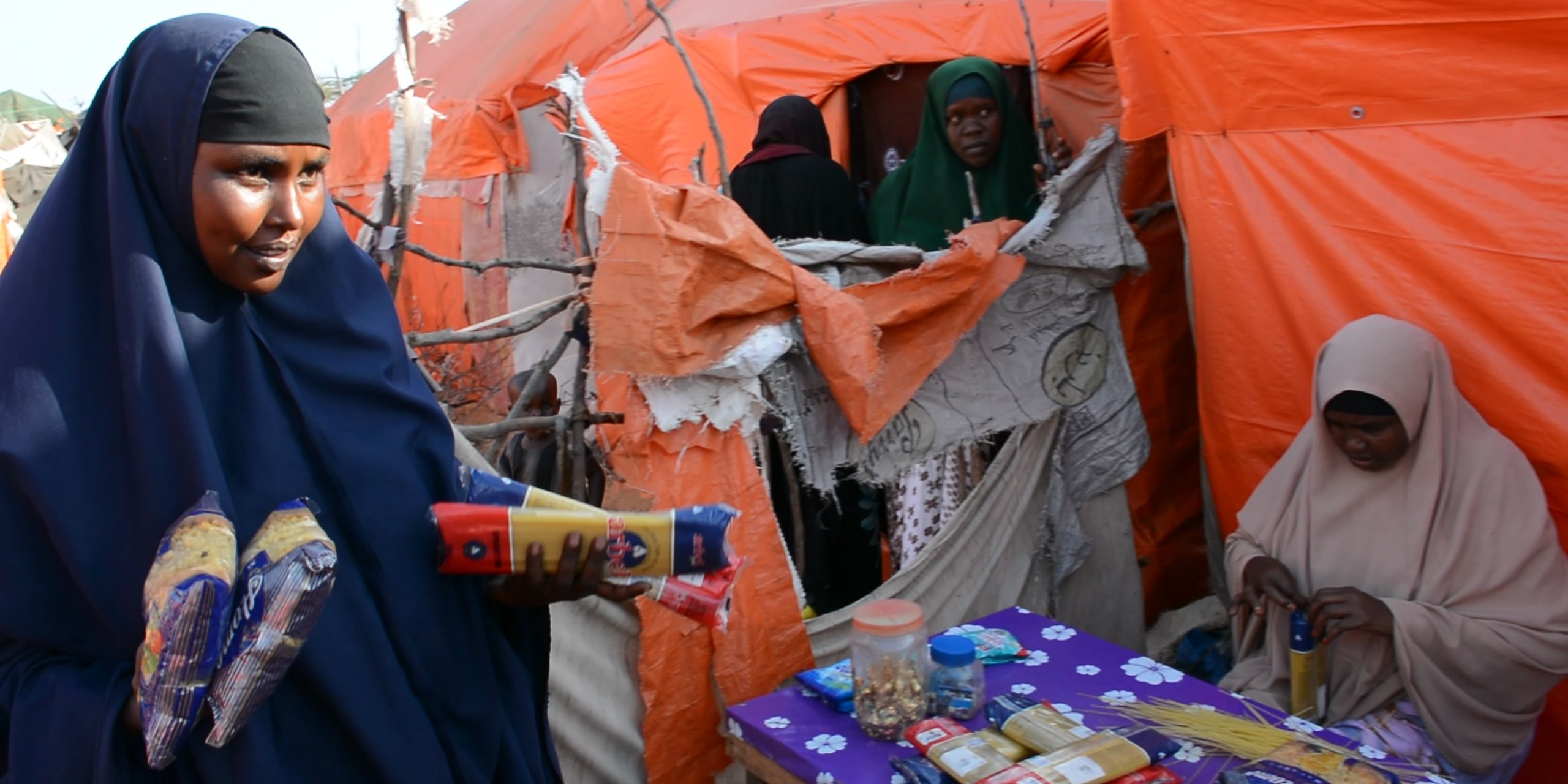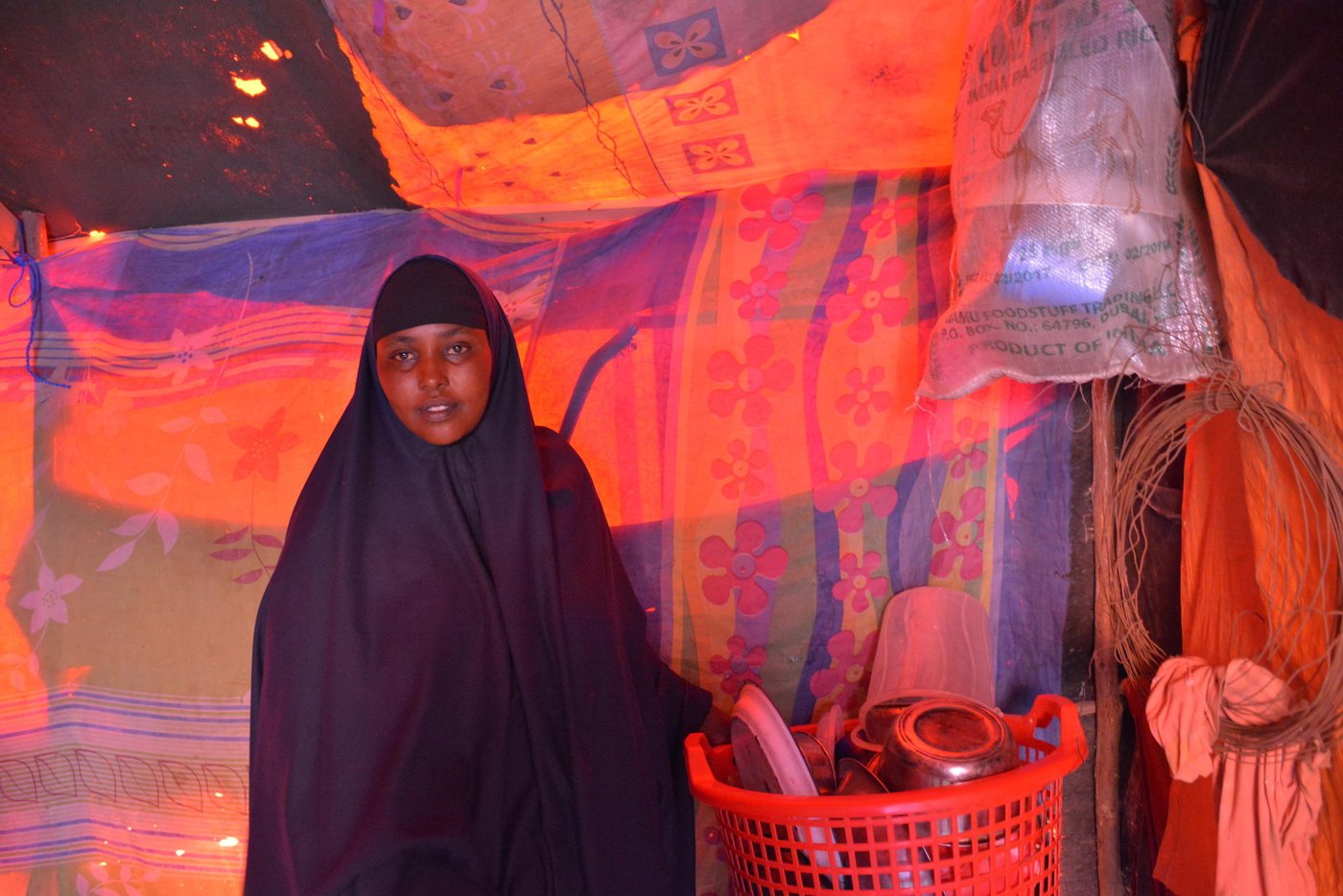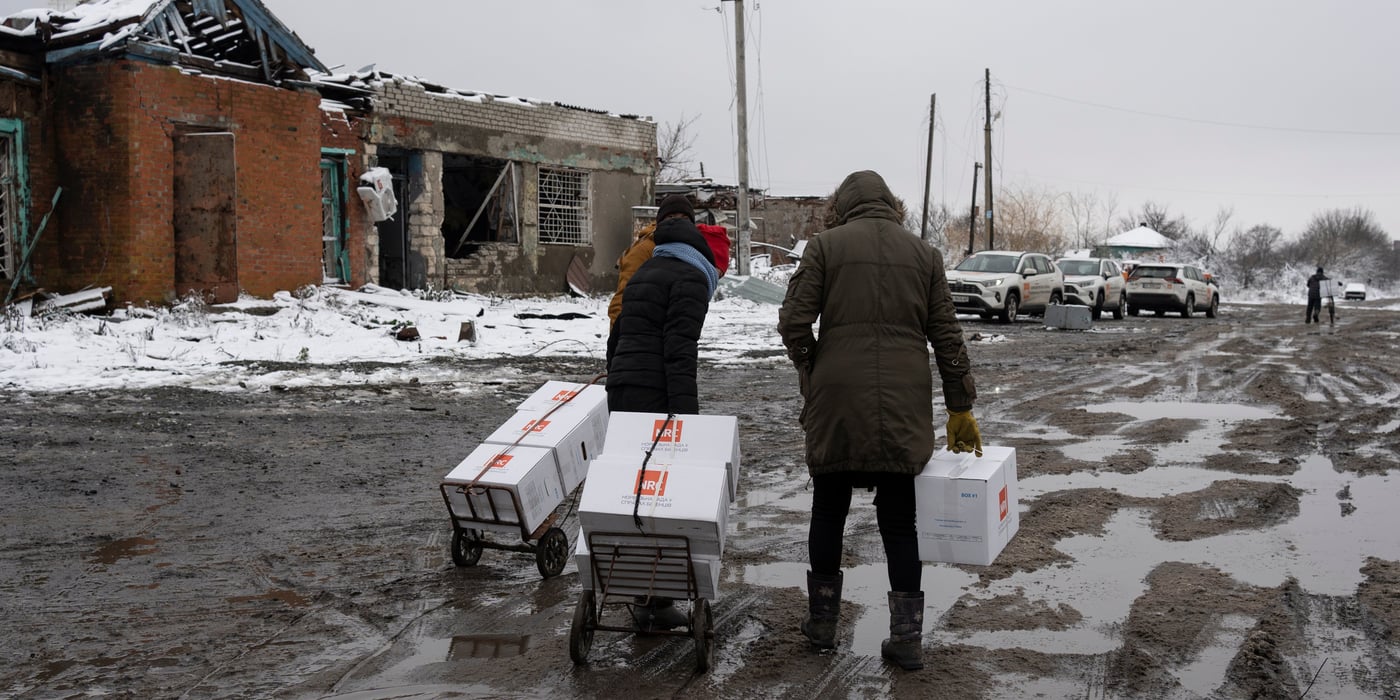
When the drought ravaged her village in Lower Shabelle region in southern Somalia, she left her farmland, her home, behind. Now, Hussein lives in Daladda-Garsaaley settlement for internally displaced people on the outskirts of the capital Mogadishu.
In Somalia, the drought crisis has been spiralling downward in 2017. More than one million people in Somalia have been forced to abandon their homes seeking food and water this year. Half the population, over 6.2 million people, needs humanitarian assistance. Close to 400,000 children under the age of five are acutely malnourished.
Hussein’s story echoes those of hundreds of thousands of Somalis across the country, forced to move to areas perceived to be greener pastures as the drought noose tightened around their necks. Some 49,000 people fled their homes in September 2017 alone.
“We dug the soil to look for underground water but found nothing, all water holes had vanished,” Hussein explains. She lost 15 cows and 20 goats to the drought.
Receiving cash
In her Mogadishu home, Hussein survives on a cash support system that affords her a monthly stipend of USD 81. The European Union Humanitarian Aid runs this project under the EU Cash Alliance, helping more than 7,000 households in south and central Somalia who have lost their livelihood to the drought.
Instead of actual cash, they receive money through mobile phone transfers, which minimises the risks of road-side muggings and theft. Mobile electronic transfers are now the preferred mode of monetary transaction in Somalia, favoured over handling bundles of notes. Women and older people in particular feel more secure when the money is sent directly to their phones.
There are, however, improvements that can be made. There is still a lack of law regulating these types of money services in the country. In addition, this type of assistance depends heavily on functioning markets and can become ineffective in complex humanitarian situations where aid organisations are denied access.
Pays for food and school
Hussein spends most of her cash support on food. She also pays school fees for her four children, who attend the Islamic school as well as formal classes. Water is high on her order of priorities. A 20-litre container costs 1,000 Somali Shillings, equivalent to USD 0.05. Finally, she spends a small amount on medical expenses for her children. Measles, bronchitis and diarrhoea are common ailments that she has to keep at bay.
Humanitarian and development agencies in Somalia are increasingly adopting the cash support initiative because of its flexibility vis-à-vis the food rations and water provisions that have been the traditional approach.
“Cash support gives me the opportunity to choose what is best for me and my children,” says Hussein. “I can divide my take-home allocation and draw a budget based on my own needs, not what others think I need. I prefer cash support rather than food support.”

Left her husband
Before she left her home, Hussein divorced her husband. They disagreed about whether they should leave or stay. He was worried that by leaving they would forfeit their land, a resource that is hard to come by. Prospectors and opportunists were lurking everywhere. But Hussein’s maternal instincts were in flight mode as the drought was closing in around them.
Eight months later, Hussein says she does not regret leaving behind her home in Lower Shabelle. Her children’s survival and their future prospects are more important than conforming to unrealistic social expectations. Losing all rights to her property following the divorce means that she has to start all over again.
“I will save some money, take a loan and generate a start-up kit which will enable me to open a small shop and do business,” she says.



